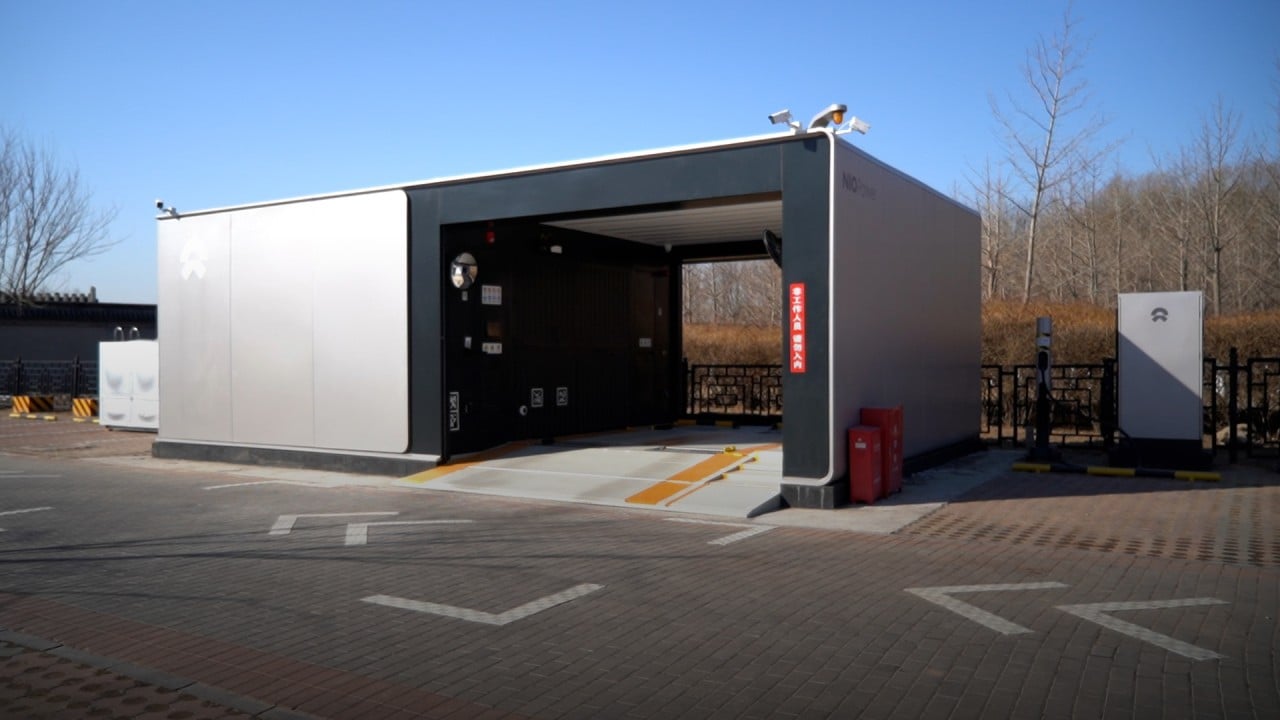Revenue plunged 42.1 per cent on a quarterly basis to 9.9 billion yuan.
Nio handed over 30,053 vehicles between January and March, down 40 per cent from the previous quarter amid a bruising discount war in mainland China’s EV sector.
In the second quarter Nio, which is listed in both Hong Kong and New York, rolled out incentives to encourage use of its battery-swap technology to bolster its sales.
The proprietary technology allows car owners to quickly exchange a spent battery pack for a fully charged one. Under the promotion, buyers of Nio vehicles that rent a swappable battery from the carmaker are exempt from paying 12 months of rental fees – a saving of 8,736 yuan.
The first Onvo model, the L60 sport-utility vehicle, starts at 219,900 yuan, undercutting the basic edition of Tesla’s Shanghai-made Model Y by 30,000 yuan, or 12 per cent.
The car has a driving range of 555km, the same as the Model Y.
Nio’s existing models under its namesake brand are all priced above 300,000 yuan.
“With Onvo joining our brand line-up, we are poised to expand into the broader mainstream mass market and embark on the next stage of high-quality growth,” William Li, co-founder and CEO of Nio, said in the earnings report.
The new brand will make a positive contribution to the company’s profitability when its monthly deliveries top 20,000 units, Li told a media briefing on May 16. Nio plans to begin mass production and delivery of the L60 to mainland customers in September.
BYD, the world’s bestselling EV builder, fired the first salvo in the price war in February, slashing the prices of nearly all of its cars by 5 to 20 per cent to accelerate a transition from petrol vehicles to electric cars on the mainland.
Since then, the prices of 50 models across a range of brands have dropped by 10 per cent on average, Goldman Sachs said in a report last month.


